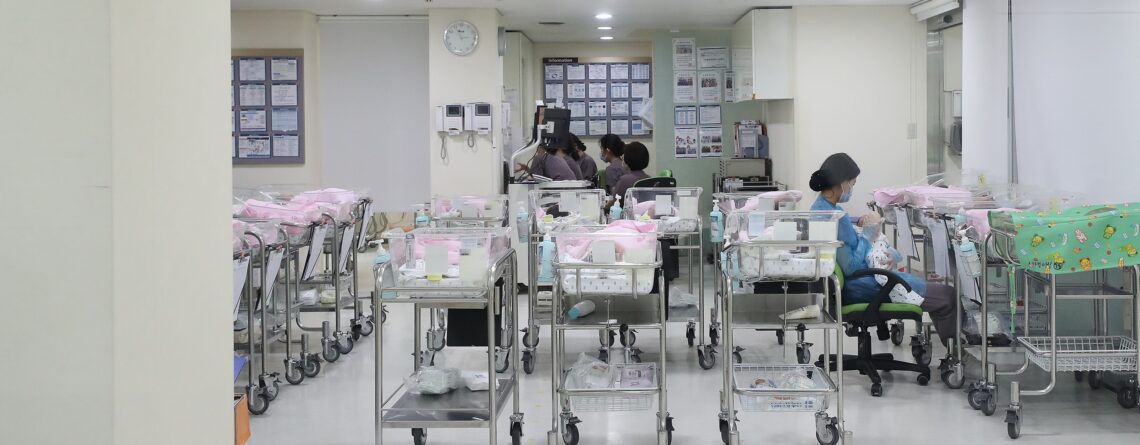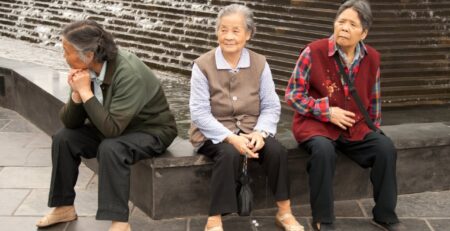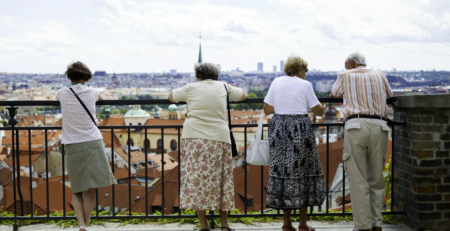Korea sees accelerating drop in birth rate
The number of babies born in Korea in August plummeted to the lowest level in nearly three years, data showed, Wednesday, heightening concerns of a looming demographic crisis driven by the world’s lowest fertility rate, decline in marriage and aging population.
Statistics Korea said a total of 18,984 babies were born in August, down 12.8 percent from a year earlier.
It marks the steepest year-on-year decline since November 2020, when the number of childbirths dipped 15.5 percent.
The latest tally also marks lowest figure for any August since the statistics agency began compiling related data in 1981. The figure had never sunk below 20,000.
Record-low births have been reported every month this year _ 23,179 in January, 19,939 in February, 21,138 in March, 18,484 in April, 18,988 in May, 18,615 in June and 19,012 in July.
Such streaks of declines correspondingly extend a year-on-year fall in the number of newborns for 11 straight months.
Of all major cities and provinces, North Jeolla Province was the only region that displayed an increase in the number of newborn babies.
The number of marriages also declined to 14,610 in August, down 7 percent from a year earlier. The August data extends a year-on-year fall in the number of marriages for the second consecutive month.
The marriage rate compared to a year earlier has been going through ups and downs this year.
The rate stood at 21.5 percent in January, 16.6 percent in February and 18.8 percent in March. It briefly retreated to 8.4 percent in April, before advancing again to 1 percent in May and 7.8 percent in June, and falling to 5.3 percent in July.
Statistics Korea analyzed that couples who delayed getting married due to the COVID-19 pandemic rushed to tie the knot early this year and that the number of such delayed marriages are “stabilizing to some extent as the year passes on.”
The number of divorces stood at 8,057 in August, down 2.1 percent from a year earlier.
The country saw the number of deaths rising 1.7 percent year-on-year to 30,540 in August, declining since May.
The August tally also resulted in a natural decline in population by 11,556.
The country is struggling with a rapidly dwindling population, which, after peaking at 51.84 million in 2020, started to decline in 2021 and is anticipated to fall to 50.19 million in 2040, according to the statistics agency.
Korea’s total fertility rate, or the average number of children a woman bears in her lifetime, dipped to 0.78 in 2022, which is the lowest level in the world.
The country is rapidly turning into an aging society, with the total number of people aged 65 or older having surpassed 9 million in 2022 for the first time ever. Korea is anticipated to become a super-aged society by 2025, when senior citizens will represent 20 percent of the population.
Read more @koreatimes











